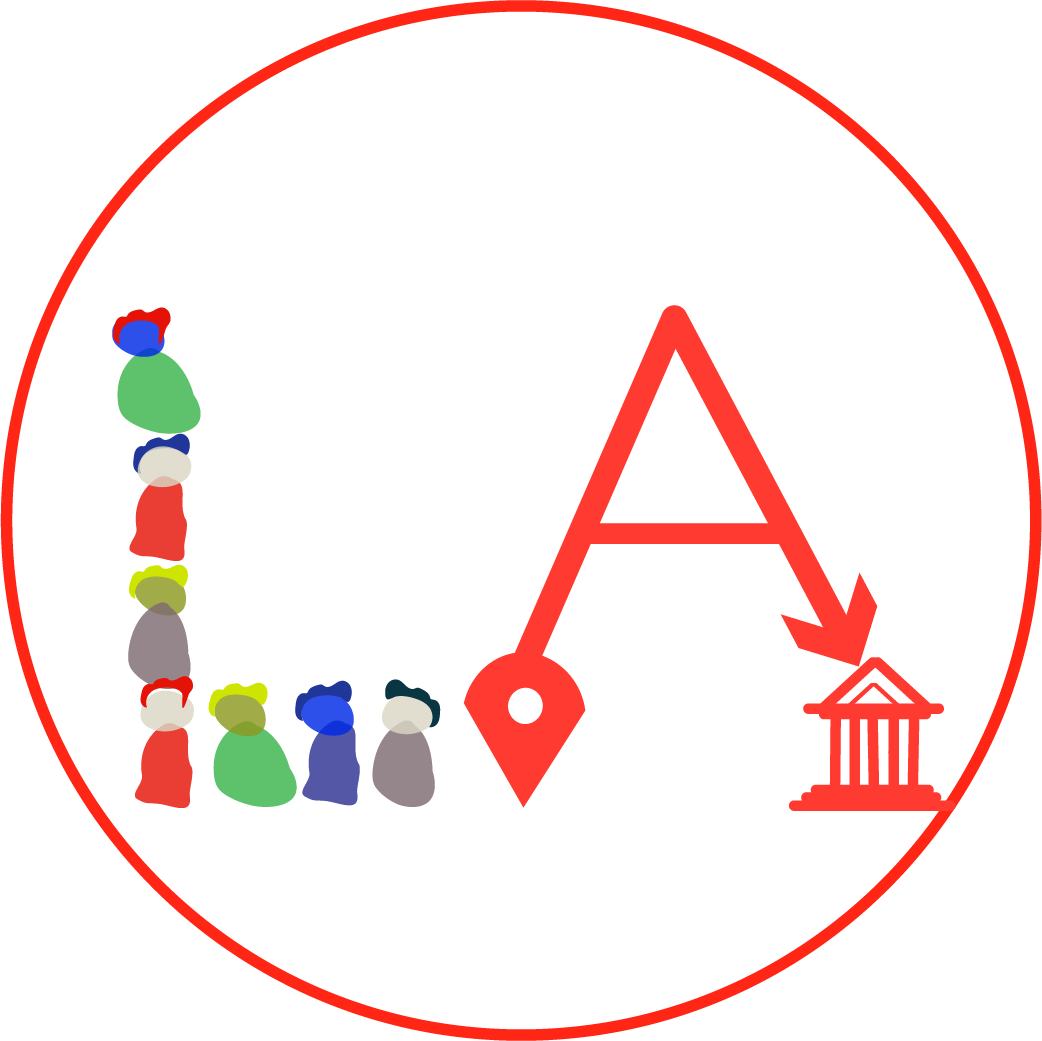“The Practical Guide for Digital Basic Cataloguing” is a NEMO report offering insights on cataloguing already digital collections to optimise their use.
Digitisation is now part, or at least ought to be, of activities for Museums. Digitisation is not only a tool for digital preservation but gives access to broader communities and audiences. Cataloguing techniques are vital to its success.
The report addresses institutions of all sizes and financial capacities. Here is an overview of the contents to offer you a general idea, as it is best to use the report to learn about digital cataloguing.
The report has 10 chapters:
Institutional requirements
- Outlining how to select and implement the recommendations
- “Museum mission statement and collection policy
- Digital Strategy
- Education and training of staff”
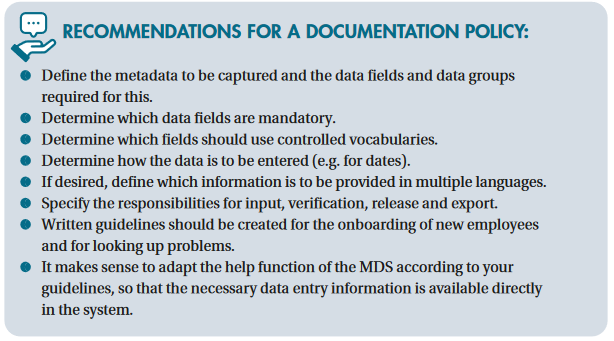
Basic Recommendations for Digital Information Processing
- The core values of digital information acquisition.
- “Coding
- Information decomposition
- Represntation of information accuracy”
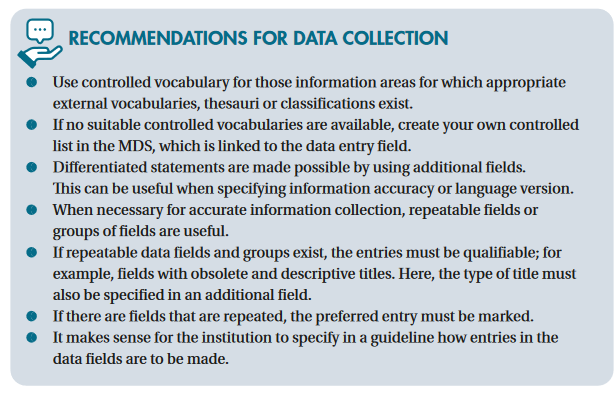
Controlled Vocabularies
- Controlled vocabularies, terminologies, and taxonomies; their selection allows for more effective processing of linked data
- “Selection criteria
- Examples of controlled vocabularies
- Other vocabularies”
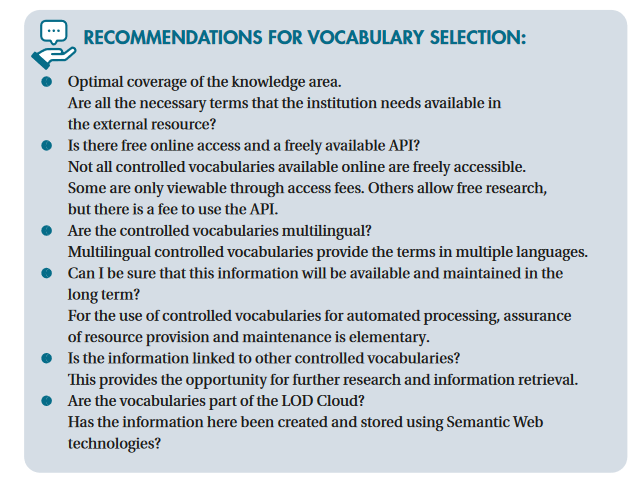
Automated Data Enhancement and Further Processing
- Prepared data allow for the automatic enrichment from external sources
- Further processing/reuse of data
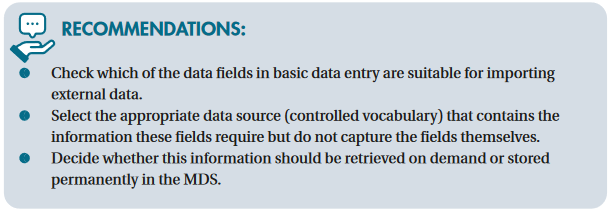

Digital Media Objects
- “Digital photographs or scans
- Documents
- Audio and video files
- 3D representations
- Digital Asset Management System (DAMS)”
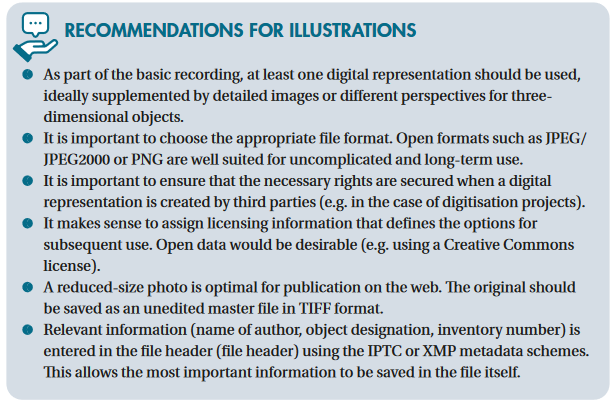
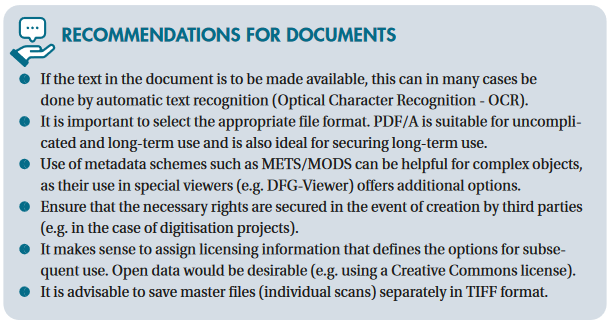
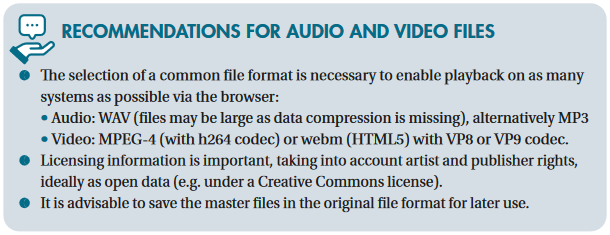
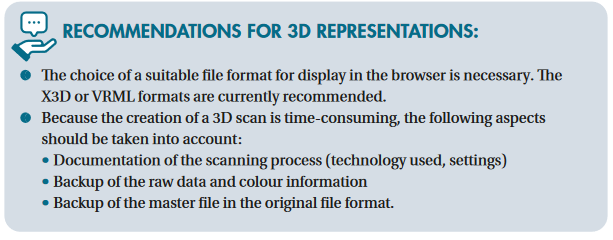
Multilingualism
- Increases an organisation’s resources through the internet
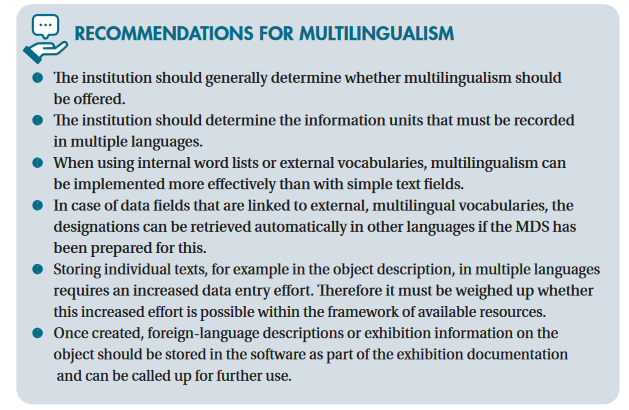
Data Export and Interfaces
- Essential for numerous purposes
- ” Data exports
- Complex export based on metadata standards
- Data provision via interfaces
- Application Programming Interface ( API)
- Data harvesting”
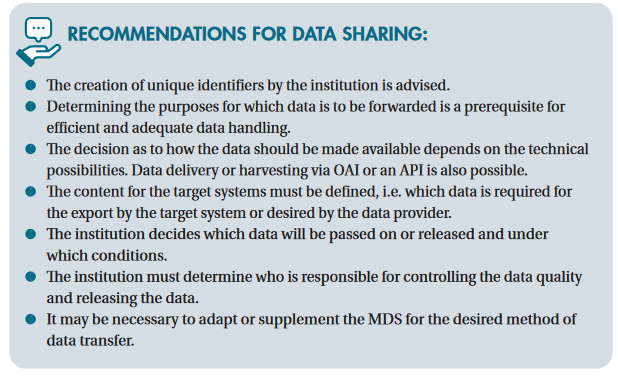
Provenance
- For collections from colonial or unresolved provenance
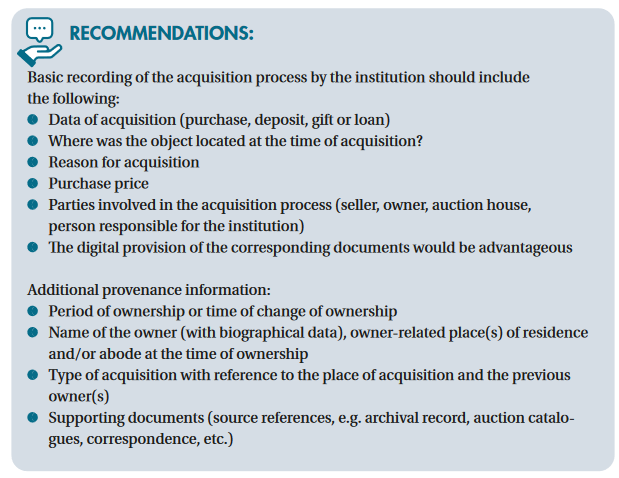
Legal Issues
- Copyright
- Neighbouring rights
- Uses
- Limitation and exceptions of copyright
- Orphan works
- Out-of-commerce works
- Extended collective licensing
- Reproductions of public domain works
- Personal rights and data protection in photographs
- Licensing by museums, creative commons
Digital Sustainability
- With regard to access, discoverability and more
- Aspects of digital sustainability for digital basic recording
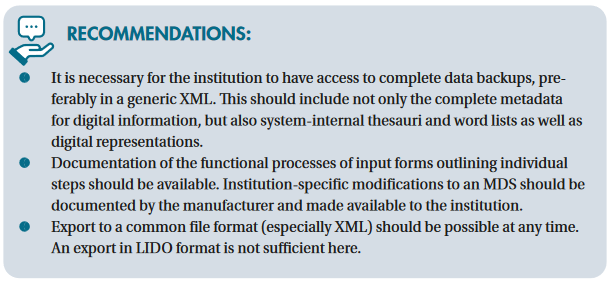
Our take
Whilst there are several guides and policies on digital cataloguing the NEMO report is gold, it offers a clear breakdown of all the elements involved, examples and additional resources -PLUS their recommendations are simple and easy to follow. The report helps bring balance and accessibility in the digitisation and documentation for all institutions.
I want to learn more:
New NEMO report on organising digital cataloguing outlines 10 helpful principles
- Read the Practical Guide for Digital Basic Cataloguing – 10 Principles (also attached)
- Access the German version Digitale Grunderfassung: 10 Grundsätze
- Explore all of NEMO’s publications
